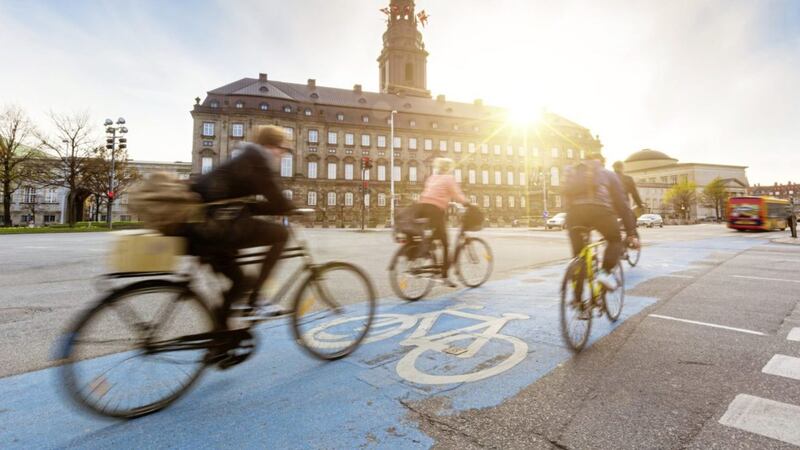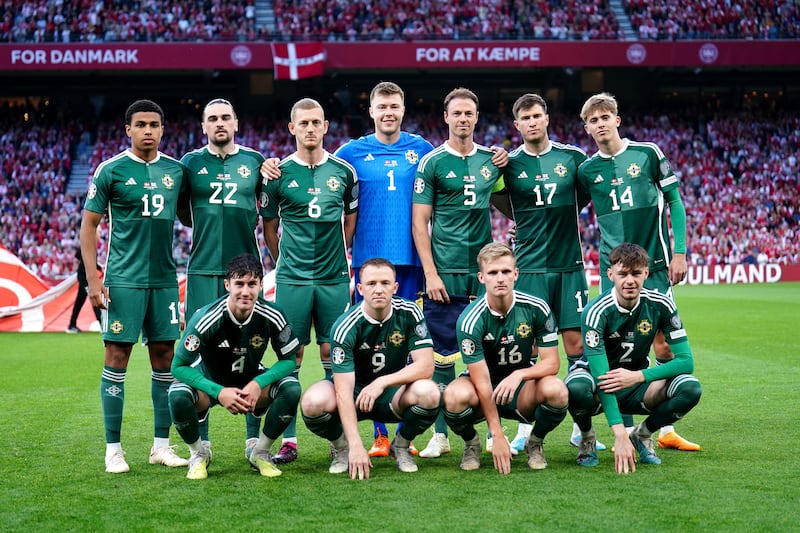A FEW weeks ago my work took me to Copenhagen, a city I had not visited up to this point, and where the World Health Organisation has a significant presence. Next October up to 1,000 health professionals and elected officials will come to Belfast to take part in the 2018 WHO International Healthy Cities Conference, which Belfast Healthy Cities has won the right to host, in a competitive process against other European cities. That is very welcome and will represent a significant boost for our city.
My business there was to meet, along with colleagues, with the World Health Organisation but there was also an opportunity to soak up an experience of a new city, to look about and see how Copenhagen operates, and it does so very efficiently.
From landing and taking a train straight into the city centre and a metro which dropped us close to our hotel the city smacked of efficiency and sustainability. Not only is cycling the major means of getting around Copenhagen, but the city appears built to accommodate that.
Rush hour is genuinely a cycling led period, with the value for money trains designed to accommodate as many bikes as passengers. From early morning and continuing throughout the day I saw toddlers and even one one occasion elderly parents being transported on bikes. Bike lanes are not a hit or miss affair like they are in Belfast, where they often get taken over by delivery vehicles and used as parking bays, or simply disappear between streets.
During an early morning run by the sea I was struck by how similar parts of Copenhagen are to Belfast. The tow path along which sits the Little Mermaid (a most underwhelming tourist attraction it has to be said) is similar to our own and neatly splits the water from the land, with sights to behold on each side. Even in September tourist numbers were high with the restaurants and coffee houses (so many coffee houses!) along Nyhavn and its canals thronged on a Sunday evening.
This was the kind of visit which leaves me thinking, ‘what if’. What if Belfast really did reach its full potential?
Two processes are under way which can help Belfast reach that full potential. Firstly, the bid which is being prepared to secure the designated Capital of Culture bid, along with Derry & Strabane Council, could be transformative. If the bid is successful it will attract significant resources from Europe while the branding and marketing potential is immeasurable. Glasgow, Liverpool and Dublin all built successfully on their designations and Galway will assume the status in 2020.
One of the competing cities for the 2023 mantle is Dundee, and this week their bid received the approval and support of Nichola Sturgeon, Scottish First Minister. While Belfast Mayor Nuala McAllister is doing an admirable job representing the city at home and abroad, there is no doubt we miss the imprimatur of a First and deputy First Minister. It doesn’t help and it is starting to hurt.
Headlines surrounding the political deal have understandably focused on the new £1 billion, and of course more recently on whether the money will actually be delivered. One lesser mentioned element of the deal was a commitment from the UK government to “work towards a comprehensive and ambitious set of city deals across Northern Ireland to boost investment and help unlock the full potential of Northern Ireland.”
That political impetus may be the driver towards Belfast and indeed Derry/Londonderry securing a city deal. In the past there was clearly some resistance in government ranks about Belfast’s bid but the council is now making a major push for a city deal. In the north west Mark Durkan, when he was MP, led the momentum toward city deal status and the latest political representative to echo that call has been Gregory Campbell, suggesting the DUP now wholly buy into the concept.
The city deal between central government and Edinburgh led to an investment of £580 million, and Belfast has set out how it could benefit from a city deal status too. Enhanced regeneration powers including a single regeneration body for Belfast, better transport connections, a financial commitment which could have a real impact on our infrastructure, all of this could help Belfast to become the city it can. The same principles and potential apply to Derry too and it is this small element within the DUP deal which could end up having the longest term impact.
It looks like devolved government is a distant prospect and that some form of direct rule is on the way later in the autumn. In those circumstances it is important that where we do have political power and representation, it has an impact. That puts an onus on councils and local government. The ingredients are in place for Belfast and Derry to make important progress now and into the longer term, it is vital that opportunity is not missed.
:: Brendan Mulgrew is managing partner of MW Advocate. Twitter: @brendanbelfast
:: Next week: Conor Lambe








